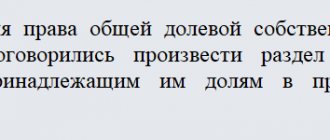No one is eternal, and therefore people die and leave behind property goods acquired during their lives. And here the question arises of how and who inherits them. Conflicts often arise among relatives on this basis. To avoid disagreements and even quarrels, you just need to know the laws on inheritance. Let's consider how to divide the inheritance between the heirs of the first stage - the closest relatives?
What is the order of succession according to law in 2021?
Order of succession by law
Rarely does anyone think about drawing up a will, which names a specific heir. Therefore, if it is not there, inheritance is carried out according to Federal Law Ch. 63 No. 146-FZ dated 06/04/2018. The order of inheritance is determined by the Civil Code and depends on the relationship to the deceased.
The priority heirs are close relatives:
- spouse;
- daughters;
- sons;
- parents.
If there is no will, then everything that belonged to the deceased passes according to the order of inheritance. When there are no first-degree relatives, the right passes to the second and further.
How first-line heirs enter into inheritance
Articles 1141 -1145 and 1148, Part 3 of the Civil Code of the Russian Federation establishes 7 lines of inheritance. After the death of a relative who did not leave a will, the closest people come into the inheritance - they are considered the first priority. And, only in the absence of such, the following, depending on family ties.
First priority heirs after the death of one of the spouses
By law, a spouse is considered to be a person who is in a marital relationship registered in the registry office. Subsequently, only the legal spouse can receive a share in the inheritance. Who cannot participate in the division of inheritance:
- cohabitation and church marriage do not have legal force and do not give the right to property benefits left by the deceased;
- the former spouse of the deceased after a formal divorce;
- A spouse who was officially married can also be excluded from inheritance if the marriage is recognized as fictitious and when they have not lived together for more than 5 years.
It is worth paying attention to the rules for the distribution of property after the death of one of the spouses. First, you need to understand which of them belonged personally to the testator, and which belonged jointly to both spouses. Moreover, any property acquired during a registered marriage is their joint property, unless a marriage contract has been drawn up.
All jointly acquired property will first be divided into two parts, one of which remains with the remaining spouse. This half is indivisible. The rest will be divided into equal shares among all heirs of the first stage.
Read more: Shares of wife and children after the death of the husband in inheritance
Example. The Ivanovs bought the apartment while they were married - it is their joint property. They have two children growing up. Suddenly the husband dies, and the need arises to divide the inheritance. Residential real estate is divided into two parts. One of them remains the property of the wife. The rest will be divided between the wife and children. So, the wife gets a share of 1/2 + 1/6, and the children get 1/6 of a share each.
Property that belonged to the testator personally is divided among the first-priority heirs in equal shares.
If citizen Ivanov bought housing before marriage, then it is his personal property. After death, it will be divided equally between close relatives (wife and children), each will receive one third of the share.
Parents are pensioners
First-degree heirs also include parents who outlived their child (not only relatives, but also those who adopted him). It does not matter what relationship they are in at the time of entry, their shares will be equal.
However, the law does not give the opportunity to participate in the division of the property of a deceased child to those parents who were deprived of parental rights in relation to him. But they can again enter the first priority of the inheritance if the rights are restored.
Children
Children are considered first priority heirs. All children of the deceased have the right to participate in the distribution of the inheritance. These include:
- adopted and adopted;
- born out of wedlock, if paternity is proven;
- born within 10 months from the date of death of the testator.
How to divide an apartment between heirs
The actual division of real estate between heirs can occur voluntarily or through the court.
Voluntary section
The heirs agree among themselves and divide the property in the way that is convenient for them. This is relevant in situations where there are no particular property disputes between them and all potential owners are ready to make concessions, exchange their shares or sell them. Agreements can be made orally if there is trust. In such a situation, they simply re-register title to other people, receiving other property or monetary compensation in return. If there is no trust, you can draw up an agreement and have it certified by a notary. Such a system eliminates misunderstandings or abuse of trust of other heirs.
Documents and agreement
In addition to the text of the agreement between the heirs, the notary will only need passports or other identification documents, as well as a report on the appraisal of the apartment. There is no need to prove ownership or the fact of inheritance, since the agreement is voluntary and it is assumed that the parties are well aware of who owns what and on what grounds. The appraisal report is needed to ensure that the parties better understand the value of the divided property, as well as to determine the amount of state duty.
Expenses
The assessment report will cost between 5-6 thousand rubles. In some cases, it may be cheaper; a lot depends on the characteristics of the apartment, its location and other factors that can complicate the appraiser’s work. For example, if you need to travel to another region to conduct an assessment, the price will increase very significantly.
In addition, you will have to pay a state fee in the amount of 0.5% of the value of the property, but not less than 400 rubles and not more than 20 thousand rubles. And the last expenses are for re-registration of ownership. This procedure costs 2000 rubles in Rosreestr.
Example : A three-room apartment is valued at 4 million rubles. The owners paid 5 thousand rubles for the assessment. The state fee for the agreement will be 20 thousand rubles and another 2 thousand for re-registration of ownership. Total expense: 5+20+2=27 thousand rubles. Usually this amount is divided between all interested parties, but the agreement may say otherwise. For example, one of the owners is ready to bear all such expenses by slightly increasing his share in the apartment.
Division through court
A more complex, time-consuming and expensive option is dividing real estate between heirs, but it remains the only option if it is not possible to reach an “amicable” agreement. In this case, the essence of the claims can vary widely depending on the requirements of the plaintiff and the capabilities of the defendant.
Example No. 1 : An apartment is owned by two heirs. One of them permanently resides in the apartment and does not allow the second owner access to it. In this case, he can file a lawsuit demanding monetary compensation from the first owner.
Example No. 2 : An apartment is owned by three heirs, but only one lives there. The remaining two do not live in the premises, but decide to rent out their parts of the property to third parties. The main tenant, without whose consent they plan to move other people into the apartment, has the right to file a lawsuit with demands to declare the lease agreement invalid and offer to independently rent the specified areas, buy them or exchange them for other property.
Procedure
- The property is being assessed. As with the agreement, this is required to more accurately understand the value of the property, as well as to determine the amount of state duty.
- A statement of claim is drawn up and submitted to the court at the place of residence or location of the disputed apartment.
- We are waiting for the court's decision.
- We act in accordance with the decision. If the defendant refuses to accept the decision, you can contact the enforcement service.
Documents and statement of claim
You must provide the court with:
- Real estate valuation report.
- Receipt for payment of state duty.
- Identity document.
- Certificate of inheritance rights.
- Death certificate of the testator.
You can attach other documents if they can influence the court's decision. It should be taken into account that the defendant has the same right.
Expenses
The cost of the assessment report will be about 5-6 thousand. May vary depending on the region of residence and the characteristics of the apartment. The amount of the state duty is determined by Article 333.19 of the Tax Code of the Russian Federation (clause 1, clause 1). In the case of real estate, current calculation options may include prices from 200 thousand to 1 million, as well as from 1 million and above. In the first case, any amount greater than 200 thousand rubles is taken into account (1% is calculated from it), a fixed payment of 5.2 thousand rubles is added to it. In the second case, everything that is more than 1 million (0.5% of the amount) is taken into account and a fixed payment of 13.2 thousand rubles is added.
Example No. 1 : An apartment costs 900 thousand rubles. 700 thousand is taken into account. Of these, 1% is calculated, which will amount to 7,000 rubles. Adds 5200 fixed payment to the amount received. The total amount of state duty will be: 7 + 5.2 = 12.2 thousand rubles.
Example No. 2 : An apartment costs 3 million rubles. 2 million are taken into account, from which 0.5% is calculated. This is 15 thousand rubles. 13.2 thousand are added to them. The total amount of state duty: 15+13.2=28.2 thousand rubles.
Such state duty cannot exceed 60 thousand rubles.
Other heirs of the first stage
A more complicated case is when the primary heir (son or daughter) passes away before the testator or along with him. By right of representation, his share of the inheritance may go to his children or grandchildren. Then the part that would have belonged to the deceased parent will be distributed equally between them.
The children's share will belong to them equally, if during their lifetime the testator did not deprive them of the inheritance by expressing their will in the will.
Example. A man died; he was survived by his parents and wife. His son, the only child in the family, had died several years earlier, leaving behind two children. All inheritance in sole ownership is subject to division equally into 4 equal parts: spouse, father, mother and the fourth part will go to the son's children (divided equally between them).
Dependents
Common-law spouses will not be able to claim participation in the division of the inheritance, but there are exceptions. Moreover, this applies not only to the common-law wife (essentially a stranger), but also to relatives not in the first line. Conditions that give them the right to participate in the division of property:
- live together with the testator for at least a year (in case of no relationship),
- incapacity for work and being dependent on the testator for the last year,
- full dependence only by the heir, that is, the main source of income is his material support.
However, such a person will not be able to count on participating in the division of property on an equal basis with the primary heirs. Even if the testator does not have any close relatives, the dependent will be able to receive no more than a fourth share of the entire inheritance.
Mandatory share of inheritance under a will
There are cases when, even if a will has been drawn up, it is impossible to deprive close relatives of the right to inheritance. A share must be allocated to the following family members:
- husband, wife, parent and children who have lost their ability to work (disabled people and pensioners);
- children under the age of 18 (age 18).
Thus, if there is a will, they will receive a share of the inheritance that is equal to half of what would be due if there was no will.
Children: inheritance by law and by will
Sequence is the basic principle of entering into inheritance rights. Upon the death of the testator, his or her property passes to his or her spouse, children, and living parents. They are the heirs of the first stage. If only children remain alive, then the inheritance is divided in equal shares.
In addition to natural children from all marriages, the following have legal rights to inheritance:
- adopted children;
- illegitimate children (if paternity is established - by court or voluntarily);
- children in respect of whom the testator was deprived of parental rights.
Transfer of property to children after the death of a parent/parents is impossible if:
- the testator made a will and did not mention descendants in it;
- the heir is recognized as unworthy: according to family law, children over 18 years of age must financially help their parents.
There are often situations in life when out of two children only one participates in the life of the mother and father, but after their death the property will be divided equally. The court may recognize an heir who has not fulfilled the obligation to support his parents as unworthy and deprive him of the right to inherit.
A special case is disabled dependents who were cared for by the testator for at least a year before his death. The property will be divided between them and their children. Even if the disabled dependent is a stranger, provided they live together with the testator for at least 12 months.
Consent to division or renunciation of a share in the inheritance
Several heirs may receive real estate or other divisible things, in which, by agreement, each is allocated equal shares. For an indivisible thing, after the issuance of a certificate of inheritance, the procedure for use is established. It is established by the heirs by agreement or by the court when it was not possible to reach an agreement.
An indivisible thing can be considered, for example, a car. Often such objects are present in the inheritance mass and the entire list is listed in Article 133 of the Civil Code of the Russian Federation.
Any of the heirs can refuse to enter into the inheritance or part of it by issuing a refusal certified by a notary. It can be made in favor of any of the relatives, regardless of the order, but all heirs must be notified in advance orally or by agreement, which is certified by a notary.
How is property divided upon inheritance?
Property left after the death of a person is legally inherited by his relatives in accordance with the established order of priority. Moreover, if there are several heirs of one line, everything will be divided between them in equal shares. The exception is inheritance by right of representation, when at the time of opening of the inheritance one of the heirs died. In this case, his share will be divided equally among his heirs, for example, children.
If the deceased has a spouse, then when dividing property, he is entitled to a share of everything acquired during the years of marriage. After this procedure, it will be possible to determine the inheritance mass and begin dividing the property according to the principle described above. Let's look at an example: a husband dies, leaving behind a private house acquired during marriage. In this case, half of the house is left to the wife, the second half is included in the inheritance and is divided among the heirs according to the right of priority. The spouse has the right to declare, in accordance with the procedure established by law, that she does not have a share in the property. In such a situation, the entire house will be included in the estate, and the shares will be distributed among the heirs.
The order of division of property during inheritance will be influenced by the legal regime of the object, the attitude of the heir to it, and a number of other factors. Therefore, various disputes may arise, which only an experienced lawyer can help resolve. People who do not have a legal education and try to solve problems on their own, as a rule, do not achieve the desired result and waste money and time.
Nuances of dividing property under a will
If the will is drawn up correctly, the heir will be able to dispose of the inherited objects at his own discretion; it will be extremely difficult to challenge his actions. In practice, there are situations in which the testator indicated several heirs in the will, but did not distribute shares or types of property among them. In this case, the inherited objects come into common shared ownership. Often it is impossible to do without legal assistance, especially when one of the heirs is confident that their rights have been infringed.
It happens that the testator indicates in the will only one of the property objects he owns. In this case, the property not included in the will will be divided among the heirs in the manner prescribed by law. If one of the heirs is deprived of the right of inheritance, his share is included in the total inheritance mass, then proportionally distributed among the heirs under the will.
Heirs can divide property in two ways. The simplest is to conclude an agreement among themselves. To do this, you need to obtain a certificate of inheritance, decide on the size of the shares, and then draw up a written document. It should show in detail who will get what share or property object. When concluding an agreement, the heirs have the right to independently choose how the property will be divided: in proportion to shares or otherwise. If one of the heirs is a minor at the time of division, then you need to obtain permission from the guardianship authorities. To settle all the nuances and draw up an agreement that suits each party, it is better to contact a lawyer.
In property matters, relatives rarely have unanimity of opinion, so they are unable to agree on the size of shares and the order of inheritance. In this case, it is impossible to draw up an agreement; you will have to file a claim for division of property in court. Participants in shared ownership in this case have the right to demand the allocation of their share from the inherited property, compensation for use from another heir, and the transfer of their share to another person. The division of property when entering into an inheritance in such a situation will be complex and lengthy; to protect your interests, it is important to involve an experienced lawyer. A specialist will help at all stages of the process, from determining the legality of the plaintiff’s claims and drawing up a statement of claim to protecting his interests in court. Competent legal assistance increases the chances of a favorable outcome in solving the problem.
Division of inheritance after inheritance
If one of the heirs discovers a violation of his rights, he can file a claim in court. The reasons for such a decision are not specified in the law; for example, it could be a deliberate concealment of the fact of opening an inheritance case. At the same time, it is important to meet the statute of limitations, which is 3 years from the moment the heir learned of the violation of his inheritance rights.
To divide the inheritance after entering into inheritance, you need to collect a package of documents, including evidence confirming the legitimacy of the plaintiff’s claims. The documents, together with the statement of claim, are submitted to the court at the place of residence of the defendant or at the location of the property in respect of which the dispute has arisen. It is important that the claim complies with the standards accepted in Russia and does not contain factual or grammatical errors, as well as ambiguous expressions. It is better to entrust the preparation of this document to a competent lawyer, otherwise the claim will be refused and the plaintiff will waste time.
Terms of inheritance by law
The law makes it possible to apply for opening and entering into an inheritance within six months from the date of death of a relative (Article 1163 of the Civil Code). There are a few exceptions:
- The testator was declared dead or missing by court decision. Then the 6-month countdown will begin from the date of the decision.
- The primary heir has not yet been born. Regardless of the period established by law, only after birth he will enter into inheritance.
- It happens that valid reasons did not allow the first-priority heir to accept the inheritance within 6 months; in this case, it is extended.
If the heirs assigned to the first priority do not accept the inheritance, then the principle of the following priority applies. The right will be granted to the second, who will also be given six months. Then the third, until an heir is found.
An experienced lawyer explains in the video who the first-priority heirs are under the law.
Methods for dividing an apartment between heirs
There are two options for dividing real estate between heirs: by law and by will.
By will
The simplest option. The testator determines in advance which of the heirs will receive what share. In some cases, it even indicates under what conditions. This approach eliminates in advance possible disputes about the order of inheritance and allocation of shares. However, the testator can transfer the apartment to several heirs at once, which will also cause problems with the division of real estate.
Example : The testator determines that his daughter gets the apartment, his son gets the car, and the parents get a dacha with a plot of land. In the usual manner, during inheritance by law, each of the heirs would receive a share in both the apartment, the car, the land plot and the dacha.
If the heirs do not agree with the will and can prove that the document was drawn up under pressure, it was falsified, and so on, they have the right to file a lawsuit to invalidate the will.
In law
The heirs of the property are representatives of one of the seven lines of inheritance, strictly in accordance with the procedure specified by law. Most often, heirs of the 1st-3rd stage receive real estate and other objects. These include:
- Spouse, children, parents.
- Brothers and sisters, grandparents.
- Uncles and aunts.
Representatives of the next stage have the right to property only if the representatives of the previous stage are absent in full force or have refused the inheritance. Thus, all property is divided between the heirs of the same line in equal amounts.
Example : Apartments are inherited. The heirs of the first stage are the son, daughter and two parents of the testator. Each of them receives 25% of the property.








